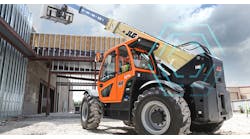I was reading an interesting article in Bloomberg Businessweek this week on fixing America's economy, and the author brought up some interesting concepts that have been utilized in other countries such as Germany, Brazil, Singapore, Canada, Thailand and a few others. Some of the topics include minimizing mortgages (from Germany); incentives to attract foreign investment (from Turkey); environmental incentives (from China); and jobs credit programs in Singapore so that employers will keep employees on working even in times of decreased demand. The article analyzed some other interesting programs that provide food for thought.
But noting the political gridlock in Washington these days makes solutions — no matter how sensible, practical or seemingly effective they might be — downright untenable.
Before getting involved in writing about the rental industry, I did a lot of political journalism and closely followed political developments, but I can never remember a time when legislators on both sides of the aisle were so intractably opposed to any kind of cooperation with their colleagues from the other party as they are now. I remember watching C-Span and laughing out loud when a senator would refer to another senator as “the gentleman from X state” and thinking to myself “there isn't a gentleman in this bunch!” But a lot of those guys were “gentlemen” compared to the current lot.
I remember how legislators as diametrically opposed as Ted Kennedy and Strom Thurmond could work together to hammer out agreements on significant issues of their era. They may have had strong disagreements politically and philosophically, but they understood the art of negotiation and the need to compromise for the common good. They understood that finding common ground was the essence of politics and the only way to get things done.
Well, I'm getting a bit off track here, but reading this article and reflecting on my past political journalism career brought to mind a conversation I had with Jim McCullough, president and CEO of CNH Construction and current chairman of the Association of Equipment Manufacturers, about efforts he has been involved with trying to lobby for a new highway bill in Washington, D.C. McCullough and a number of other industry people have devoted considerable efforts to reaching out to legislators on behalf of a possible highway bill, something that would greatly stimulate the U.S. economy as well as help the construction industry and, of course, the rental industry.
McCullough pointed out that the U.S. has not had a real infrastructure policy since Eisenhower was president during the 1950s. And while some of the impetus to develop the interstate highway system was based on Eisenhower's concern about how difficult it would be to transport troops across the country in time of need, what a dramatic boon to the U.S. economy that system has been for the past five decades.
Well, we all realize how badly in need of repair many of these highways are, as are so many roads and bridges around the country, and there are countless reasons why a high-speed rail system would be of benefit between cities as well as light rail to ease traffic gridlock in so many cities.
As McCullough points out, even though infrastructure spending would benefit everybody who lives here, and mean a lot to the United States' global economic effectiveness and competitiveness, having a coherent infrastructure strategy never seems to be a major priority. We always talk about efficiencies in the rental industry, and in manufacturing, but better overall infrastructure is vital for efficiency as an integrated economy involved in an increasingly global marketplace.
McCullough's description of the frustration of trying to get his — and this industry's — voices heard in Washington, D.C., and how motivated by politics and re-election concerns are most of the nation's political leaders, did not surprise me but certainly brought home the reality of how difficult a task lies ahead when it comes to a potential highway bill or infrastructure bill. I'm certainly well aware that I'm preaching to the choir here, and I'm not going to exhort you all to get out and lobby since I haven't done it myself.
I'm just trying to keep discussion on the topic alive, stimulate ideas and thoughts. I invite you all to continue the dialog.





